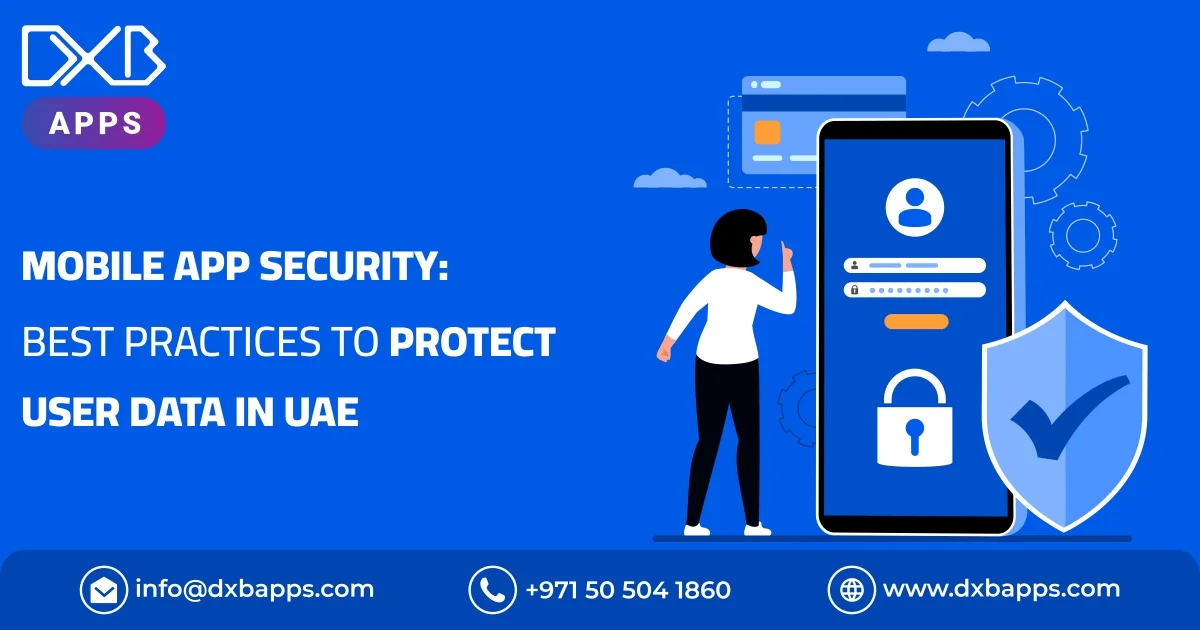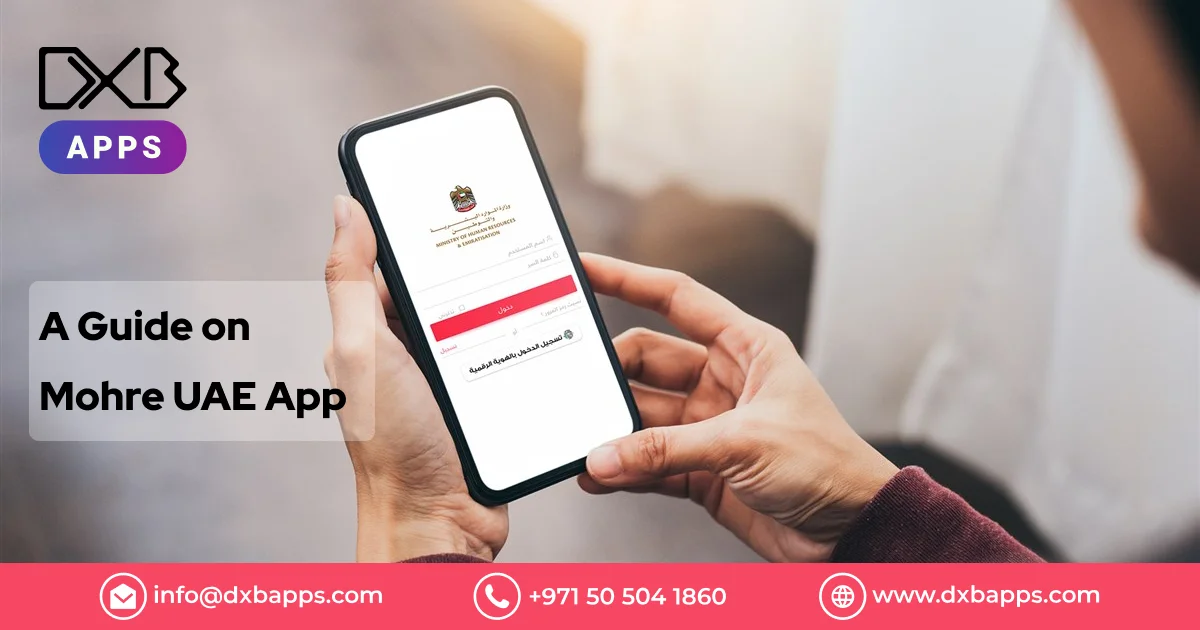Mobile app development has witnessed significant growth in recent years, with more and more businesses realizing the importance of having a mobile presence. However, as the number of mobile apps increases, so does the need for robust security measures to protect user data.
In the UAE, where mobile app usage is widespread, ensuring the security of user information is of utmost importance. This article will explore the best practices for mobile app security in the UAE, highlighting the measures businesses should take to protect user data and provide a safe digital experience. As a leading
mobile app development company in the UAE, DXB Apps is dedicated to delivering secure and reliable mobile solutions to its clients.
1. Introduction: The Significance of Mobile App Security
In today's digital landscape, mobile apps have become an integral part of our lives. We rely on them for various tasks, including communication, shopping, and financial transactions. However, the sensitive information stored within these apps makes them attractive targets for hackers and cybercriminals. Ensuring the security of user data is crucial to maintaining user trust and protecting their privacy.
2. Understanding Mobile App Security Risks
Before diving into the best practices for mobile app security, it's essential to understand the potential risks that apps face. Mobile app security risks can include:
-
Data breaches: Unauthorized access to user data, leading to potential identity theft or financial loss.
-
Malware and viruses: Mobile apps can be infected with malicious software, compromising user data and device functionality.
-
Insecure authentication: Weak authentication mechanisms can make it easier for attackers to gain unauthorized access to user accounts.
-
Insecure data transmission: Lack of encryption during data transmission can expose sensitive information to interception by malicious entities.
-
Poor code quality: Security vulnerabilities resulting from coding errors or improper implementation can put user data at risk.
3. Best Practices for Mobile App Security
To mitigate the risks mentioned above, businesses should adopt the following best practices for mobile app security:
3.1 Regular Security Audits
Conduct regular security audits to identify vulnerabilities in your mobile app. These audits should assess the app's code, network infrastructure, data storage, and authentication mechanisms. By identifying weaknesses proactively, you can address them before they are exploited.
3.2 Secure Authentication and Authorization
Implement strong authentication and authorization mechanisms to ensure that only authorized users can access sensitive data or perform critical actions within the app. Multi-factor authentication, biometrics, and secure password policies can enhance app security.
3.3 Data Encryption
Encrypt sensitive user data both at rest and during transmission. Encryption adds an extra layer of protection, making it significantly harder for attackers to decipher the information even if they gain unauthorized access.
3.4 Secure Backend Infrastructure
Ensure that your app's backend infrastructure, including servers and databases, is properly secured. Implement firewalls, intrusion detection systems, and access controls to prevent unauthorized access and protect against potential attacks.
3.5 Secure Code Development
Adopt secure coding practices throughout the mobile app development process. Follow industry standards and guidelines, conduct code reviews, and use security testing tools to identify and address vulnerabilities early in the development lifecycle.
3.6 Two-Factor Authentication
Implement two-factor authentication (2FA) wherever possible. 2FA adds an additional layer of security by requiring users to provide two forms of identification, such as a password and a unique verification code sent to their registered device.
3.7 App Permissions and Privacy Settings
Request app permissions from users only when necessary and clearly explain why you need access to specific device functions or personal information. Allow users to customize their privacy settings and provide clear options to opt out of data sharing.
3.8 Regular Updates and Patch Management
Keep your mobile app up to date with the latest security patches and bug fixes. Promptly address any reported vulnerabilities and release updates to ensure that users are protected against emerging threats.
3.9 User Education and Awareness
Educate users about the importance of mobile app security and provide guidelines for safe app usage. Encourage them to use strong passwords, enable device encryption, and avoid downloading apps from unofficial sources.
3.10 Secure Data Storage
Implement secure data storage practices, including encrypted databases and secure file systems. Avoid storing sensitive user information unnecessarily and ensure that any stored data is protected from unauthorized access.
4. The Role of Security Apps in Mobile App Protection
While implementing the best practices mentioned above is essential, mobile app security can be further strengthened by using security apps.
Security apps provide an additional layer of protection by detecting and preventing various threats, such as malware, phishing attacks, and unauthorized access attempts. These apps can monitor app behavior, scan for vulnerabilities, and offer real-time threat alerts to keep user data safe.
5. Choosing the Best Security App Development Company in the UAE
When selecting a
security app development company in the UAE, it is crucial to consider their expertise, experience, and track record in delivering secure solutions. Look for a company that has a deep understanding of mobile app security best practices and a proven ability to develop robust and reliable security apps.
6. Why DXB Apps is Your Trusted Partner for Custom Mobile App Development
DXB Apps is a
leading mobile app development company in the UAE, specializing in secure and tailored app solutions. With a team of skilled developers and a commitment to delivering high-quality products, DXB Apps ensures that security is a top priority in every stage of the development process. By partnering with DXB Apps, businesses can confidently protect user data and provide a secure mobile experience.
Conclusion
In the digital age, mobile app security is paramount to safeguarding user data and maintaining user trust. By following best practices such as conducting regular security audits, implementing strong authentication mechanisms, and staying up to date with security patches, businesses can protect their mobile apps and ensure the privacy and security of user information. Additionally, leveraging security apps and partnering with a trusted mobile app development company like DXB Apps can further enhance app security and provide users with a safe and reliable mobile experience.
FAQs
1. How often should security audits be conducted for mobile apps?
Regular security audits should be conducted at least once a year or whenever significant updates or changes are made to the app.
2. Are security apps necessary for mobile app protection?
While implementing best practices is crucial, security apps provide an extra layer of protection and help detect and prevent various threats.
3. How can users protect their data while using mobile apps?
Users can protect their data by using strong passwords, enabling device encryption, and being cautious of downloading apps from unofficial sources.
4. What makes DXB Apps a trusted partner for mobile app development?
DXB Apps has expertise in mobile app security, a track record of delivering secure solutions, and a commitment to quality and customer satisfaction.
















